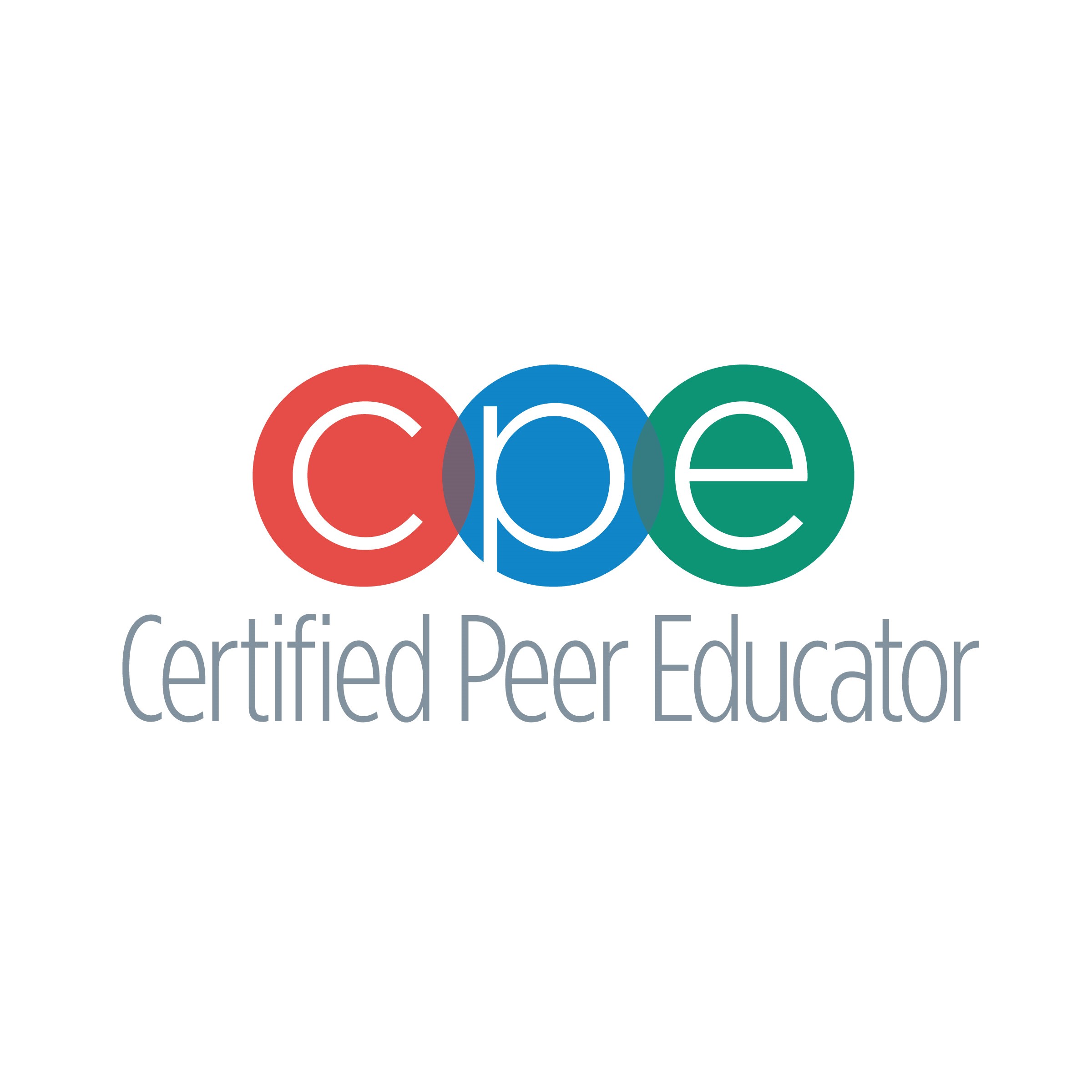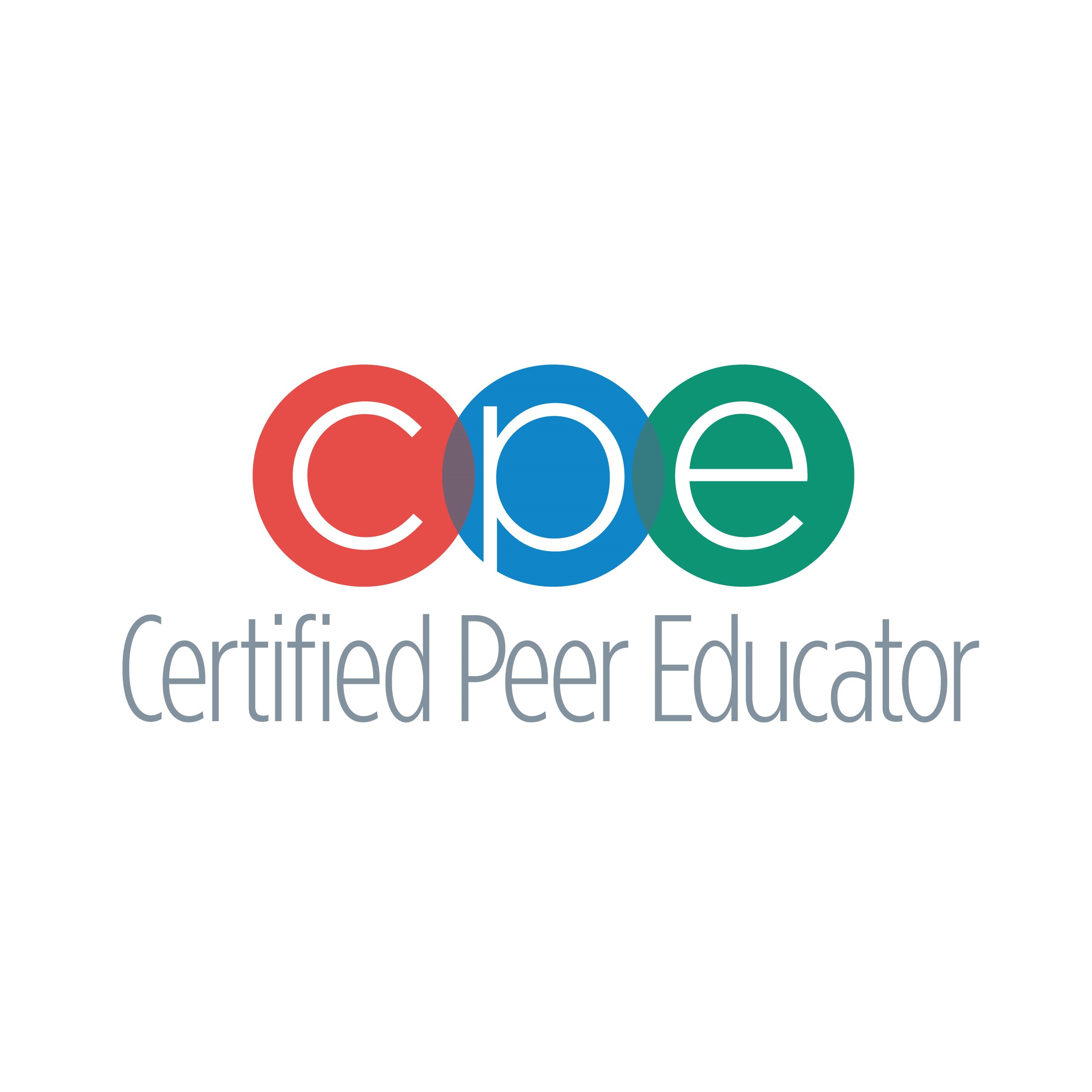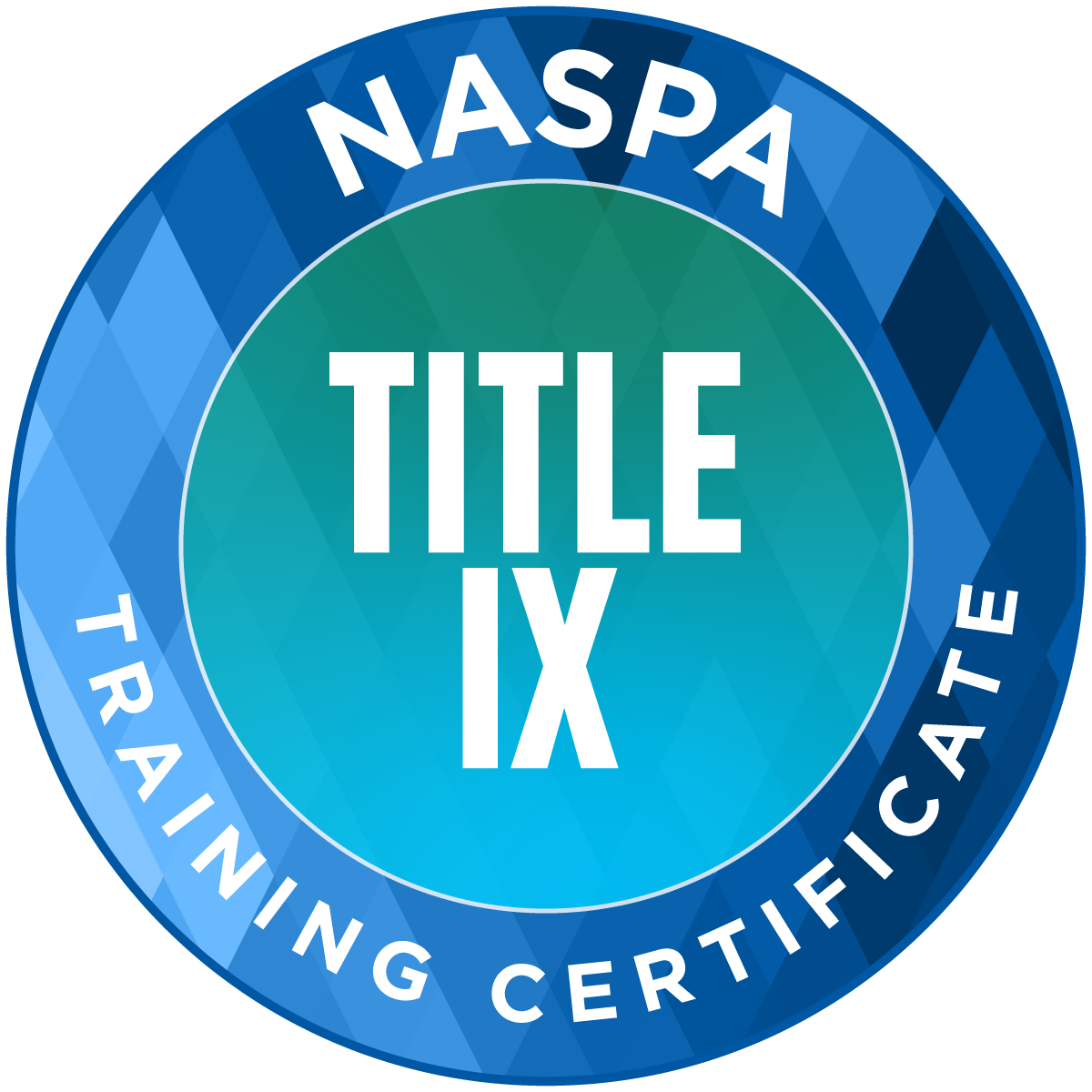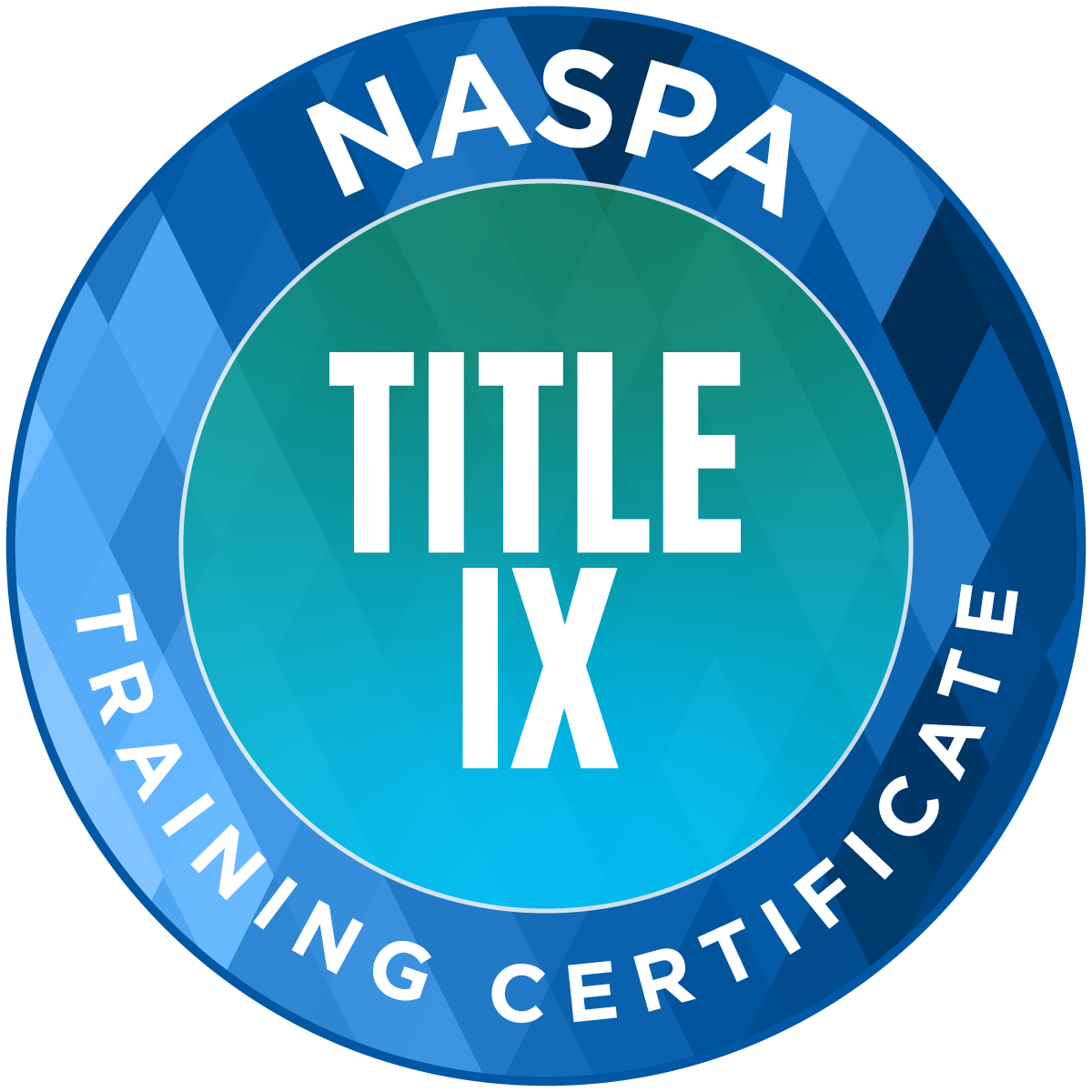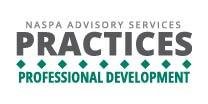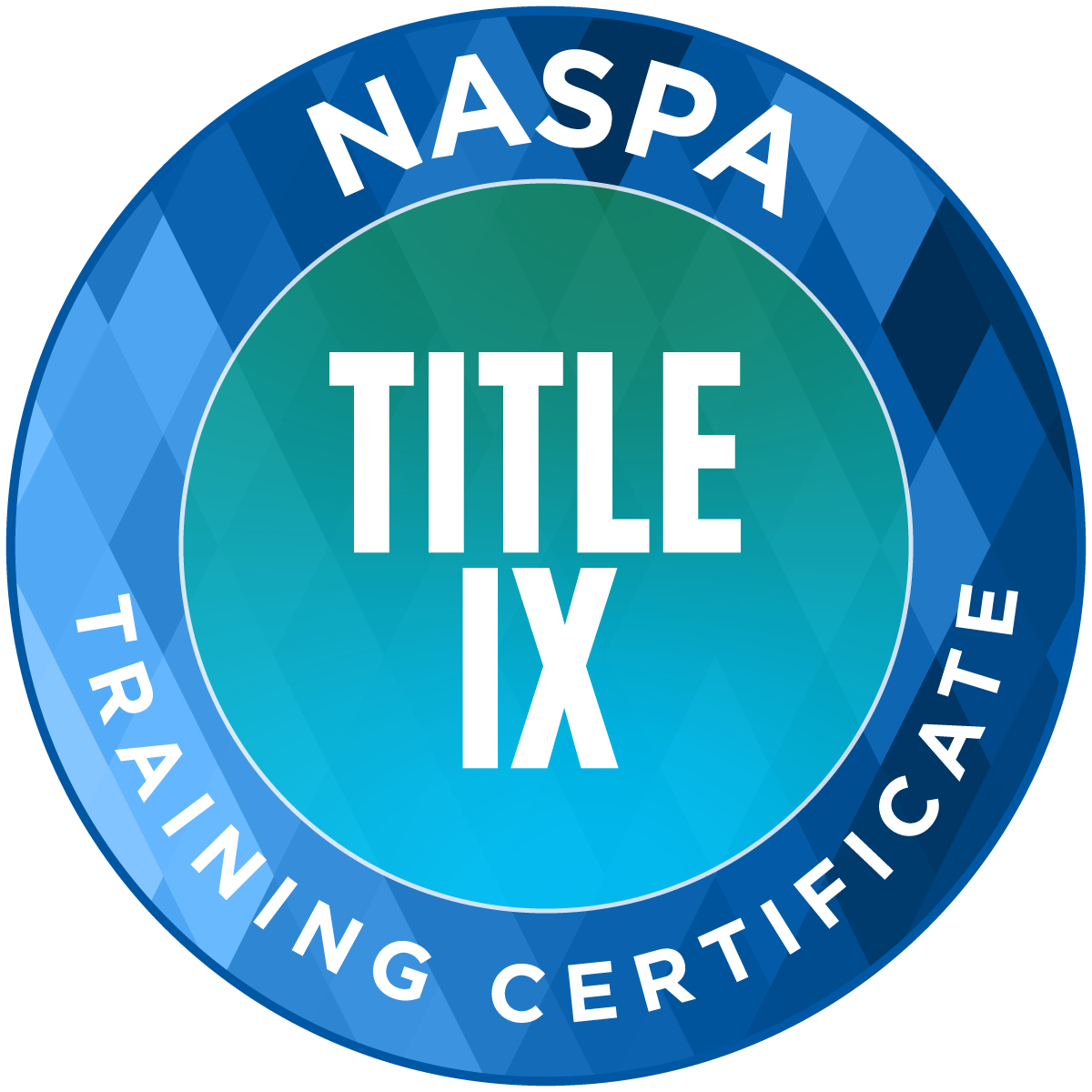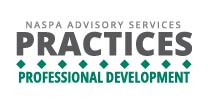
Catalog Advanced Search
-
Contains 180 Component(s) Includes Multiple Live Events. The next is on 08/01/2024 at 8:00 AM (EDT)
Certified Peer Education is now offered virtually in a Cohort format! Over three weeks, students will go through the CPE Curriculum online and at their own pace, engaging with their peers throughout the training.
Over three weeks, students will go through the CPE training. CPE Modules consist of videos, reflection questions, discussion posts, and quizzes; these are all asynchronous and can be completed on a student's individual schedule. The quizzes are for practice purposes and are not graded. Discussion posts require you to post and reply to at least three other students' posts; you do not need to reply to move to the next activity, but you will need to complete the discussion to complete the CPE course and access the CPE Exam.
- Week 1: Intro, Modules 1 & 2
- Week 2: Modules 3, 4, 5, & 6
- Week 3: Modules 7, 8, & Conclusion
If you need any assistance, please utilize our CPE Help Desk for the fastest response.
NOTE: The August Cohort will begin at 8 AM ET on August 1 and conclude at 11 PM ET on August 31. All content must be finished by then to earn the CPE Certificate.-
You must log in to register
- Non-member - $109
- Member - $89
- More Information
-
Contains 180 Component(s) Includes Multiple Live Events. The next is on 07/01/2024 at 8:00 AM (EDT)
Certified Peer Education is now offered virtually in a Cohort format! Over three weeks, students will go through the CPE Curriculum online and at their own pace, engaging with their peers throughout the training.
Over three weeks, students will go through the CPE training. CPE Modules consist of videos, reflection questions, discussion posts, and quizzes; these are all asynchronous and can be completed on a student's individual schedule. The quizzes are for practice purposes and are not graded. Discussion posts require you to post and reply to at least three other students' posts; you do not need to reply to move to the next activity, but you will need to complete the discussion to complete the CPE course and access the CPE Exam.
- Week 1: Intro, Modules 1 & 2
- Week 2: Modules 3, 4, 5, & 6
- Week 3: Modules 7, 8, & Conclusion
If you need any assistance, please utilize our CPE Help Desk for the fastest response.
NOTE: The July Cohort will begin at 8 AM ET on July 1 and conclude at 11 PM ET on July 31. All content must be finished by then to earn the CPE Certificate.-
You must log in to register
- Non-member - $109
- Member - $89
- More Information
-
Contains 1 Component(s) Includes a Live Web Event on 06/20/2024 at 1:00 PM (EDT)
This track is designed for Title IX Investigators or those individuals at an institution designated to conduct sexual misconduct investigations. This track is tailored for individuals with responsibility for conducting Title IX investigations, separate from the Title IX Coordinator and the Title IX Decision-Maker.
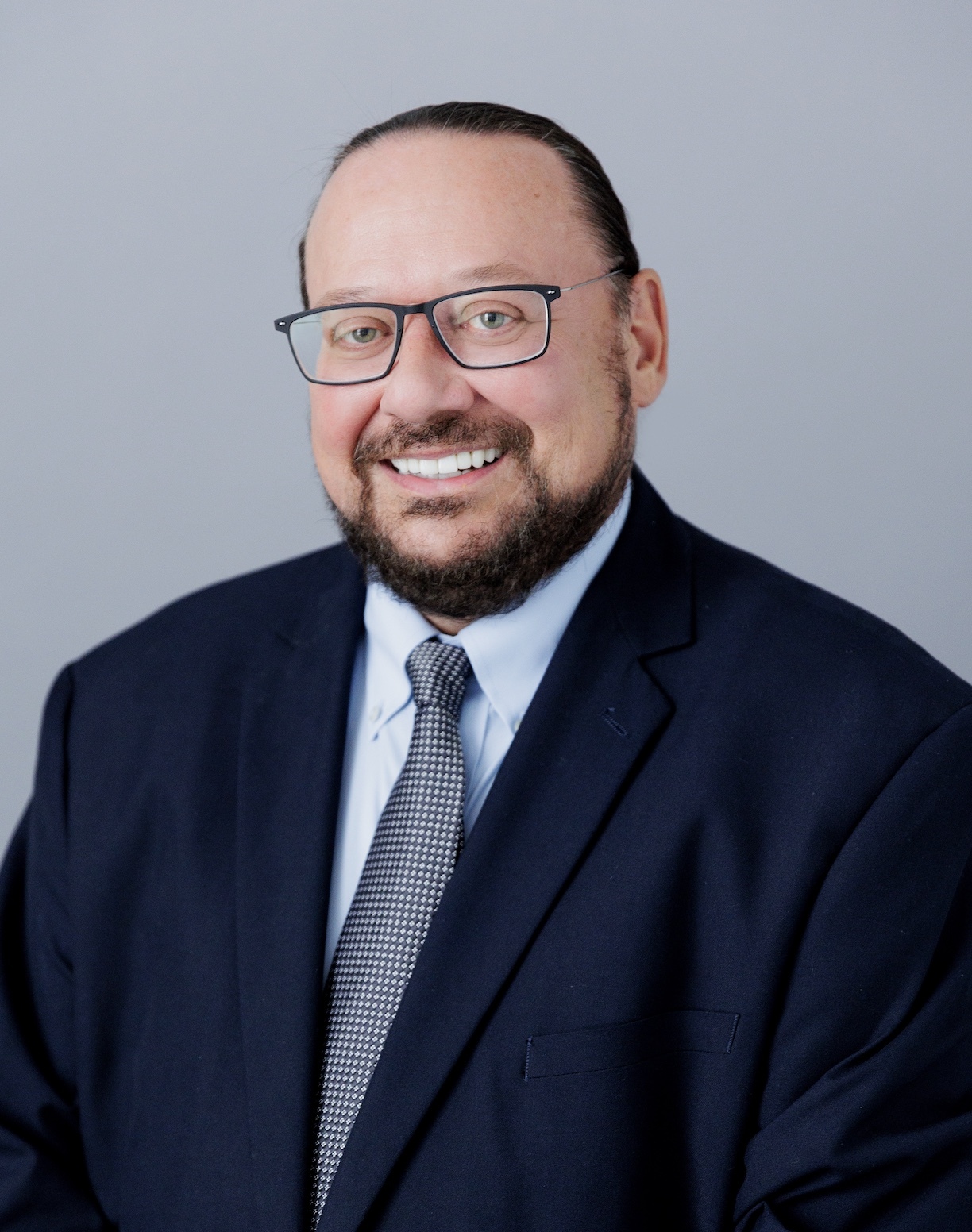
Peter Lake
Professor of Law; Director of the Center for Excellence in Higher Education Law and Policy
Stetson University
Peter Lake is a professor of law, Charles A. Dana Chair, and the Director of the Center for Excellence in Higher Education Law and Policy at Stetson University College of Law. He has spent 30 years in the classroom teaching law students and served as Stetson’s interim director of Title IX compliance in 2015. He is an internationally-recognized expert on higher education law and policy. He has been quoted or referred to in hundreds of newspapers and court opinions throughout the United States, including the Supreme Courts of California and Massachusetts in 2018. Professor Lake, an award-winning academic, has authored numerous law review articles, books, and other publications. Professor Lake is a highly sought-after speaker, and he has served as a presenter or keynote speaker at several hundred international, national, regional, and local meetings. He has trained thousands of campus personnel on student safety and other issues, including student mental health, alcohol and drug abuse, Title IX and sex discrimination, and First Amendment issues. Professor Lake is a graduate of Harvard College and Harvard Law School and serves as a Senior Higher Education Consulting Attorney at the law firm of Steptoe & Johnson PLLC.
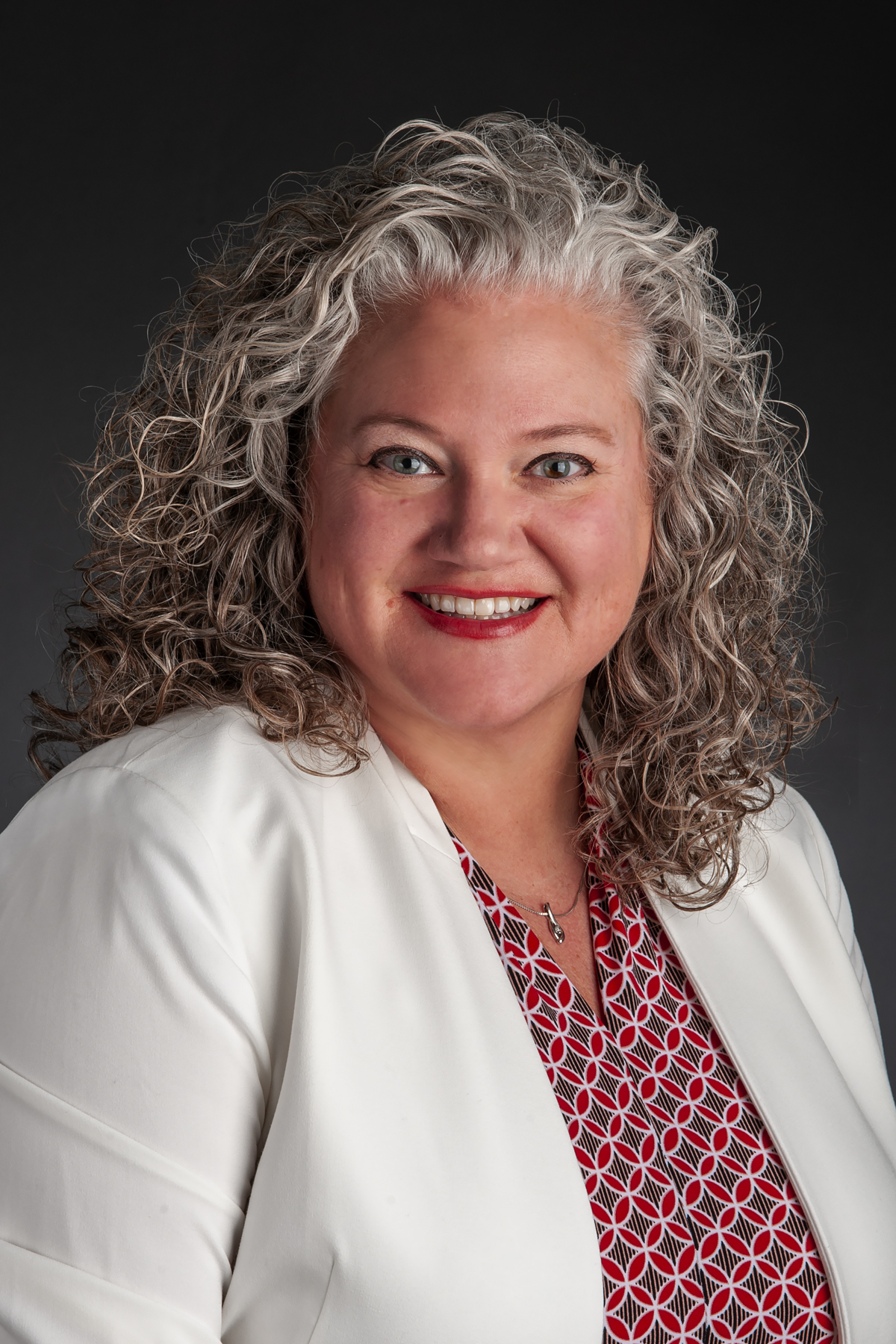
Jennifer Hammitt
Associate Vice President for Student Engagement, Student Success & Enrollment Management
Florida Gulf Coast University
Dr. Jennifer R. Hammat joined Florida Gulf Coast University in 2023 as the Associate Vice President for Student Engagement, Student Success & Enrollment Management. Prior to FGCU, she served as the Dean of Students at the University of Southern Indiana and at George Mason University as the University Title IX Coordinator. She served in a variety of roles at The University of Texas at Austin, as the Associate Vice President for University Compliance Services, Assistant Vice President for Student Affairs, Title IX Coordinator, and Clery Act Coordinator. Dr. Hammat has facilitated the implementation of Title IX requirements and best practices for the past 9 years. Before her Title IX work, she worked for sixteen years in Student Affairs with Student Conduct, Student Media, Greek Life, Residence Life, Contract Management, Policy Implementation, Strategic Planning, Enterprise Risk Management, Minors on Campus, and Student Government practices.
Dr. Hammat earned her B.A. in Organizational Communication from Murray State University, and her M. Ed. and Ed. D. in Higher Education Administration, both from Texas Tech University.
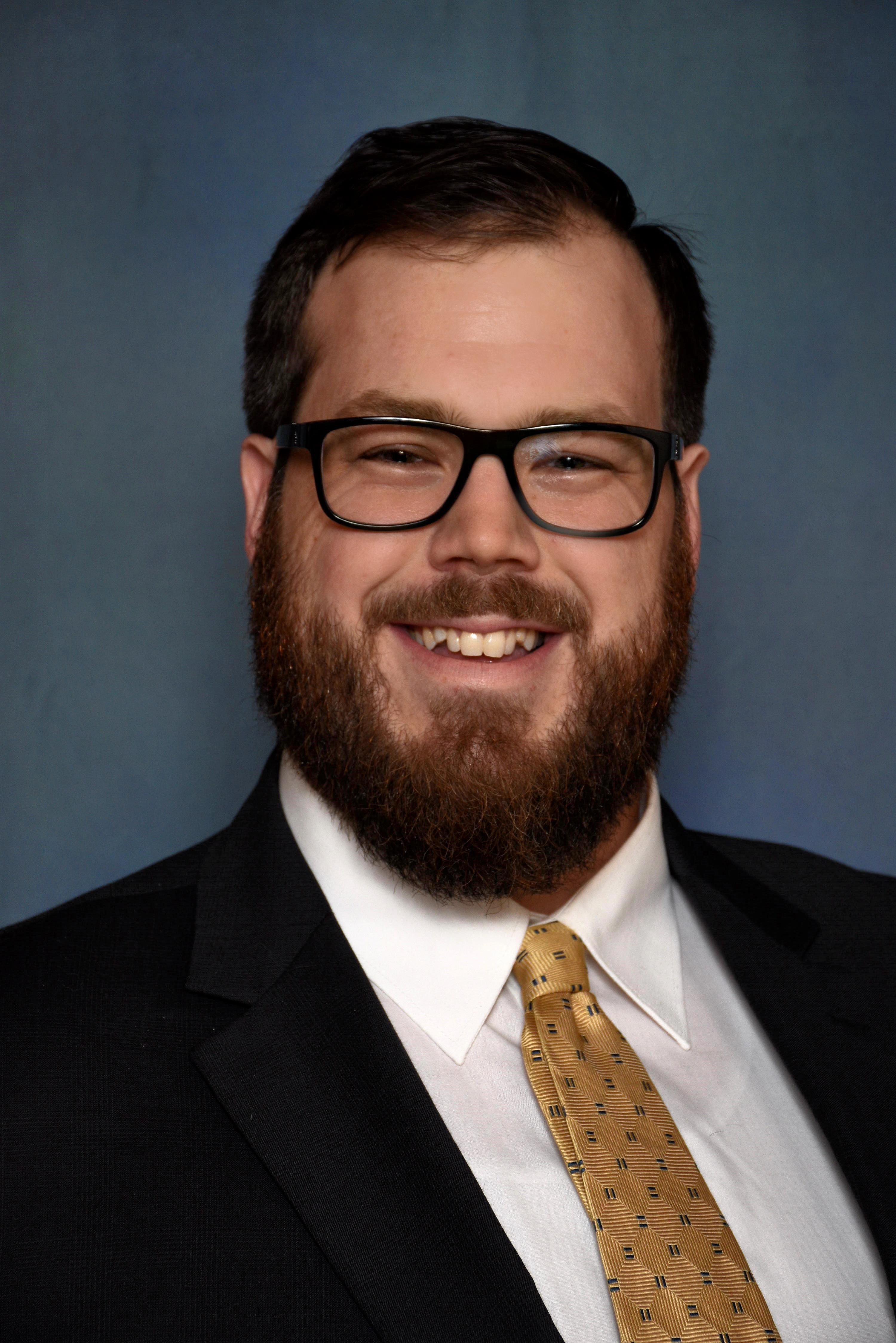
Jake G. Sapp
Assistant State Attorney
Florida 4th Circuit
Jacob Sapp is an attorney who focuses on civil rights compliance within higher education settings. As a former institutional compliance officer and Title IX administrator, he helps his clients navigate complex situations while ensuring all processes and procedures meet legal and regulatory standards.
Specifically, Jacob has experience managing Title IX processes, including report intake, the implementation of supportive measures, and formal complaint gatekeeping, as well as preparing notices of allegations and managing informal resolutions, sanctioning, and recordkeeping. He’s also served in the role of decision-maker for various clients and is able to provide interim Title IX coordination. Jacob has drafted and updated non-discrimination policies for Title VI, Title VII, Title IX, and ADA/504 on behalf of colleges and universities and serves as a civil rights investigator, conducting interviews and authoring investigative reports.
Serving as counsel to a variety of clients within higher education, Jacob leads training events for students and employees on topics such as VAWA, hazing, and bystander intervention, as well as advises college leadership personnel on institutional compliance, risk management, and other evolving legal topics.
Jacob is an experienced presenter, creating and delivering civil rights training presentations for various national associations and institutions of higher education.

Jill Dunlap
Senior Director of Research, Policy, and Civic Engagement
NASPA - Student Affairs Administrators in Higher Education
Dr. Jill Dunlap is the director for research and practice at NASPA, based in Washington, DC. Prior to joining NASPA, Jill worked closely with college student survivors of sexual violence for more than 14 years at three different campuses. In 2014, Jill served as a non-federal negotiator representing four years of public institutions on the VAWA negotiated rulemaking committee. Jill has her Ph.D. in political science and public administration from Northern Illinois University, where her dissertation work focused on the experiences of students impacted by sexual violence on campus.
June 3 – 27, 2024
This track is designed for Title IX Investigators, or those individuals at an institution who have been designated to conduct sexual misconduct investigations. This track is tailored for individuals with responsibility for conducting Title IX investigations, separate from the Title IX Coordinator and the Title IX Decision-Maker.
Duration: Approx.18 hours total
Audience: Title IX Investigators
Format: Video modules with presentation slides and 1 Live Virtual Session
See below for details on pre-recorded training modules and live virtual session dates and times.
Outline
- Introduction: Critical Issues in Title IX and Sexual Misconduct (30 mins)
- Important §106.2 Definitions, Including Sex-Based Harassment (90 mins)
- Consent and Unwelcomeness (30 mins)
- The Various Roles of Investigators and Decision-Makers (30 mins)
- Detailed Overview of Title IX Mandates, Including Grievance Processes (120 mins)
- Title IX Intersections with Other Laws (60 mins)
- Title IX Evidence Issues (60 mins)
- Interview Techniques for Title IX Investigations (120 mins)
- Constructing an Investigative Report (60 mins)
- Bias, Conflict of Interest, Retaliation, etc. (45 mins)
- The Roles of Advisors in the Title IX Process (45 mins)
- Records Management, FERPA, Confidentiality and Privacy (75 mins)
- Supportive Measures and Remedies Under Title IX (60 mins) JILL
- Pregnant and Parenting Issues (75 mins)
DISCLAIMER: The pre-recorded video training modules are currently being developed by the NAPSA Title IX Certificate Program training team. The exact topics and duration listed for the training tracks and individual modules below are subject to change. Video training modules will be available to the cohort on a rolling basis, with the first batch of modules released on Monday, June 3, 2024.
Live Virtual Sessions:
Investigations: Thursday, June 20, 2024 from 1:00 – 4:30 pm Eastern
Supplemental Add-on for Investigator Course: Decision-Making for Investigators ($319 members/ $519 non-members)
If you have historically served or will serve as an Investigator, but your institution is or will be using a single investigator model where the decision-maker makes a determination of a policy violation, register now for the Investigator Track (Track 3). You will have the opportunity to add on this supplement, which provides additional training on decision-making only. If you are unsure if you need this supplement now, you can add the supplement at a later date when the NASPA Title IX trainings are offered again. This supplement is only available to those who are currently registered for the new NASPA Title IX training program on the requirements of the 2024 Title IX regulations in Track 3. You can add this supplemental course when you register for the Investigator Track.
Duration: Approx. 6 hours
Audience: Investigators
Format: Video Modules and 1 Live Virtual Session
Questions?
Course Content: Jill Dunlap, Senior Director of Research, Policy, and Civic Engagement Technical Issues: virtuallearning@naspa.org
-
You must log in to register
- Non-member - $1,799
- Member - $1,999
- More Information
-
Contains 1 Component(s) Includes a Live Web Event on 06/18/2024 at 1:00 PM (EDT)
This track is designed for student conduct staff and those who will be designated as Title IX Decision-Makers under the 2024 Title IX regulations. Title IX decision-makers are those charged with determining the conclusion of a live hearing proceeding or “paper hearing,” distinct from the Title IX Coordinator and the Title IX Investigator. This track also specifically covers adjudication of sexual misconduct by student conduct administrators for cases not covered by Title IX policy.

Peter Lake
Professor of Law; Director of the Center for Excellence in Higher Education Law and Policy
Stetson University
Peter Lake is a professor of law, Charles A. Dana Chair, and the Director of the Center for Excellence in Higher Education Law and Policy at Stetson University College of Law. He has spent 30 years in the classroom teaching law students and served as Stetson’s interim director of Title IX compliance in 2015. He is an internationally-recognized expert on higher education law and policy. He has been quoted or referred to in hundreds of newspapers and court opinions throughout the United States, including the Supreme Courts of California and Massachusetts in 2018. Professor Lake, an award-winning academic, has authored numerous law review articles, books, and other publications. Professor Lake is a highly sought-after speaker, and he has served as a presenter or keynote speaker at several hundred international, national, regional, and local meetings. He has trained thousands of campus personnel on student safety and other issues, including student mental health, alcohol and drug abuse, Title IX and sex discrimination, and First Amendment issues. Professor Lake is a graduate of Harvard College and Harvard Law School and serves as a Senior Higher Education Consulting Attorney at the law firm of Steptoe & Johnson PLLC.

Jennifer Hammitt
Associate Vice President for Student Engagement, Student Success & Enrollment Management
Florida Gulf Coast University
Dr. Jennifer R. Hammat joined Florida Gulf Coast University in 2023 as the Associate Vice President for Student Engagement, Student Success & Enrollment Management. Prior to FGCU, she served as the Dean of Students at the University of Southern Indiana and at George Mason University as the University Title IX Coordinator. She served in a variety of roles at The University of Texas at Austin, as the Associate Vice President for University Compliance Services, Assistant Vice President for Student Affairs, Title IX Coordinator, and Clery Act Coordinator. Dr. Hammat has facilitated the implementation of Title IX requirements and best practices for the past 9 years. Before her Title IX work, she worked for sixteen years in Student Affairs with Student Conduct, Student Media, Greek Life, Residence Life, Contract Management, Policy Implementation, Strategic Planning, Enterprise Risk Management, Minors on Campus, and Student Government practices.
Dr. Hammat earned her B.A. in Organizational Communication from Murray State University, and her M. Ed. and Ed. D. in Higher Education Administration, both from Texas Tech University.

Jake G. Sapp
Assistant State Attorney
Florida 4th Circuit
Jacob Sapp is an attorney who focuses on civil rights compliance within higher education settings. As a former institutional compliance officer and Title IX administrator, he helps his clients navigate complex situations while ensuring all processes and procedures meet legal and regulatory standards.
Specifically, Jacob has experience managing Title IX processes, including report intake, the implementation of supportive measures, and formal complaint gatekeeping, as well as preparing notices of allegations and managing informal resolutions, sanctioning, and recordkeeping. He’s also served in the role of decision-maker for various clients and is able to provide interim Title IX coordination. Jacob has drafted and updated non-discrimination policies for Title VI, Title VII, Title IX, and ADA/504 on behalf of colleges and universities and serves as a civil rights investigator, conducting interviews and authoring investigative reports.
Serving as counsel to a variety of clients within higher education, Jacob leads training events for students and employees on topics such as VAWA, hazing, and bystander intervention, as well as advises college leadership personnel on institutional compliance, risk management, and other evolving legal topics.
Jacob is an experienced presenter, creating and delivering civil rights training presentations for various national associations and institutions of higher education.

Jill Dunlap
Senior Director of Research, Policy, and Civic Engagement
NASPA - Student Affairs Administrators in Higher Education
Dr. Jill Dunlap is the director for research and practice at NASPA, based in Washington, DC. Prior to joining NASPA, Jill worked closely with college student survivors of sexual violence for more than 14 years at three different campuses. In 2014, Jill served as a non-federal negotiator representing four years of public institutions on the VAWA negotiated rulemaking committee. Jill has her Ph.D. in political science and public administration from Northern Illinois University, where her dissertation work focused on the experiences of students impacted by sexual violence on campus.
June 3 – 27, 2024
This track is designed for student conduct staff and those who will be designated as Title IX Decision-Makers under the 2024 Title IX regulations. Title IX decision-makers are those who are charged with making a determination at the conclusion of a live hearing proceeding or “paper hearing,” distinct from the Title IX Coordinator and the Title IX Investigator. This track also specifically covers adjudication of sexual misconduct by student conduct administrators, for cases that are not covered by Title IX policy.
Duration: Approx. 26.5 hours total
Audience: Title IX Decision-Makers (including appeals) and Student Conduct Administrators
Format: Video Modules and 1 Live Virtual Session
See below for details on pre-recorded training modules and live virtual session dates and times.
Outline of Course:
- Introduction: Critical Issues in Title IX and Sexual Misconduct (30 mins)
- Important §106.2 Definitions, Including Sex-Based Harassment (90 mins)
- Consent and Unwelcomeness (30 mins)
- The Various Roles of Investigators and Decision-Makers (30 mins)
- Detailed Overview of Title IX Mandates, Including Grievance Processes (120 mins)
- Title IX Intersections with Other Laws (60 mins)
- Title IX Evidence Issues (60 mins)
- Title IX Live Hearing Proceedings (45 mins)
- Questioning in Decision-Making Processes /Live Hearings (45 mins)
- Essentials for Decision-Making (45 mins)
- Bias, Conflict of Interest, Retaliation, etc. (45 mins)
- The Roles of Advisors in the Title IX Process (45 mins)
- Records Management, FERPA, Confidentiality and Privacy (75 mins)
- Supportive Measures and Remedies Under Title IX (60 mins)
- Pregnant and Parenting Issues (75 mins)
- Adjudication for Non-Title IX Conduct Officers (Part 1) (60 mins)
DISCLAIMER: The pre-recorded video training modules are currently being developed by the NAPSA Title IX Certificate Program training team. The exact topics and duration listed for the training tracks and individual modules below are subject to change. Video training modules will be available to the cohort on a rolling basis, with the first batch of modules released on Monday, June 3, 2024.
Virtual Live Sessions:
Decision-Making in Grievance Procedures/Sexual Misconduct Procedures: Tuesday, June 18, 2024 from 1:00 – 4:30 pm Eastern
Supplemental Add-on for Decision-makers and Student Conduct Administrators: Decision-Making for Investigators ($319 members/ $519 non-members)
If you have historically served or will serve as a Decision-Maker in a live hearing proceeding (or will serve as a Decision-Maker in a “paper hearing”), or if you are a Student Conduct Administrator, but you may be asked to do investigations in the future or would like some investigator training, register now for the Decision-Maker/Student Conduct Administrator Track (Track 2). You will have the opportunity to add on this supplement, which provides additional training on investigations only. If you are unsure if you need this supplement now, you can add the supplement at a later date when the NASPA Title IX trainings are offered again. This supplement is only available to those who are currently registered for the new NASPA Title IX training program on the requirements of the 2024 Title IX regulations in Track 2.
Duration: 6.5 hours
Audience: Title IX Decision-Makers (including appeals) and Student Conduct Administrators
Format: Video Modules and 1 Live Virtual Session
Questions?
Course Content: Jill Dunlap, Senior Director of Research, Policy, and Civic Engagement Technical Issues: virtuallearning@naspa.org
-
You must log in to register
- Non-member - $1,799
- Member - $1,999
- More Information
-
Contains 3 Component(s), Includes Credits Includes a Live Web Event on 06/13/2024 at 1:00 PM (EDT)
Research suggests that transfer students are an often overlooked population of students on our campuses. Utilizing Bronfrenbrenner’s Socio-ecological Model, this presentation seeks to provide student affairs professionals a framework with which they can more holistically connect with transfer students within their individual context.
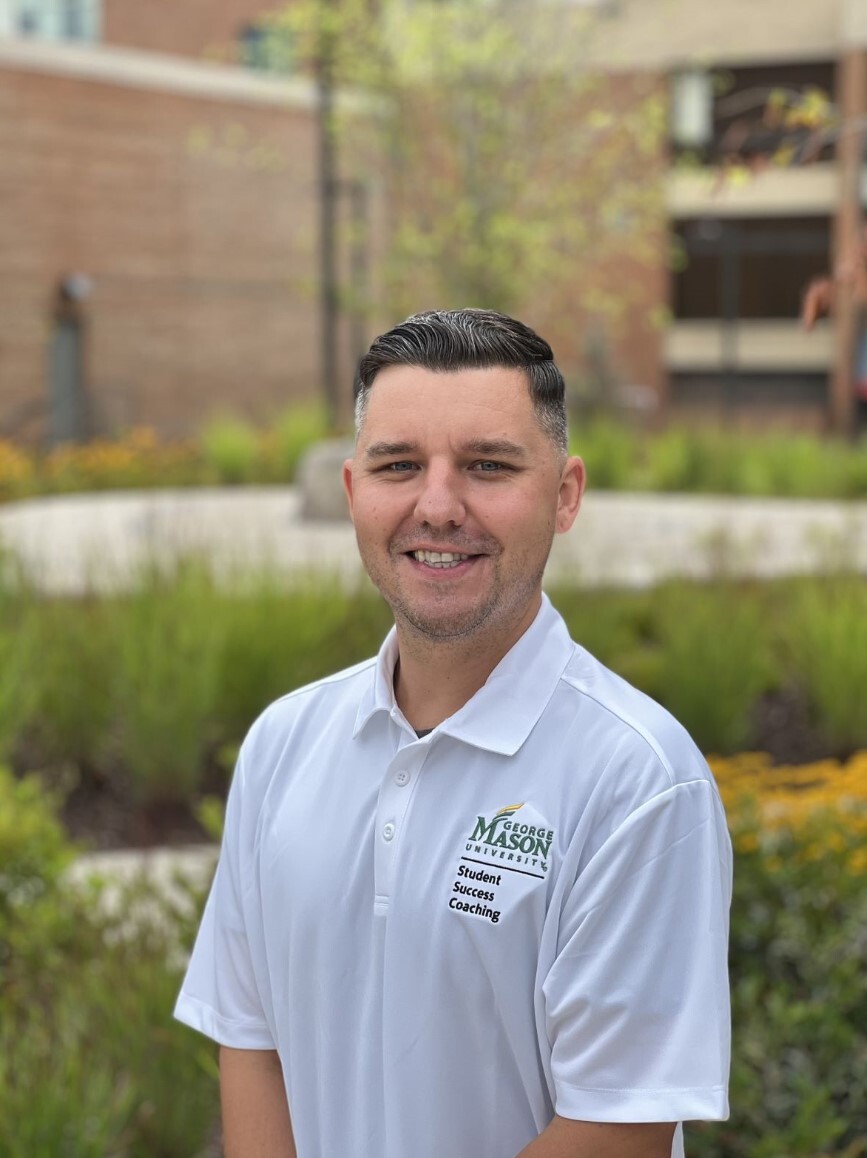
Joshua Braaten
Senior Success Coach
George Mason University
Joshua Braaten attended West Virginia University and earned a Bachelor of Science in Sports Management – envisioning a career in the business sector of scholastic or collegiate sport. After graduating from WVU, Joshua began a profession in academia – but as an Academic Advisor at American Public University System where he developed a great passion for student services/coaching within higher education. He has now spent a decade working in a student services role at the collegiate level. Most recently, Joshua has been promoted to Senior Success Coach within the Success Coaching Unit at George Mason University.

Rebecca Mattern
Success Coach
George Mason University
Rebecca Mattern is a 2x Patriot, earning both her Bachelor’s degree in Integrative Studies and her Master’s degree in Counseling and Development from George Mason University. During her graduate program, she worked as a Graduate Assistant and Academic Coach with Learning Services and as the Graduate Career Counseling Intern with Career Services. Rebecca joined the Student Success Coaching team at George Mason in Summer 2022.

Sam Hediger
Success Coach
George Mason University
Sam Hediger is a PhD student at the George Mason Carter School for Peace and Conflict Resolution, working to better understand conflict systems and peacebuilding’s power to address them. While attaining his master’s degree in Conflict Resolution at Portland State University, he worked for three years as a Graduate Peer Mentor, supporting both students and faculty in their renowned University Studies undergraduate program. Sam is also a Student Success Coach at George Mason University.

Flannery Wickham
Success Coach
George Mason University
Flannery Wickham has been an ADVANCE student Success Coach working with matriculated students from Northern Virginia community college since the Summer of 2022. Before joining George Mason University, Flannery worked as a College Life Coach at her alma mater, Florida State University. Flannery moved to the NOVA region to attend graduate school at George Mason and just recently graduated with her Masters in Higher Education and Student Development.
Transfer students are an integral part of campus communities across a wide variety of institutions in the US. The number of degree-seeking undergraduate students who were enrolled in postsecondary institutions as transfer students in 2020 was 1,243,471. Despite these large numbers, research suggest that transfer students are an often overlooked population of students on our campuses. Utilizing Bronfrenbrenner’s Socio-ecological Model, this presentation seeks to provide student affairs professionals a framework with which they can more holistically connect with transfer students within their individual context. By understanding each student’s micro-, meso-, and macrosystem outlined by Bronfrenbrenner, it is our hope that student affairs professionals will be better able to provide inclusive and holistic supports that can help transfer students not only remain in and graduate from college, but leave school a more fully developed person than when they arrived.
Learning Outcomes:
1. Identify the unique needs of transfer students
2. Learn about the systems identified in Bronfenbrenner’s ecological model
3. Use Bronfenbrenner’s ecological model to better understand the systemic factors that affect transfer students
4. Reflect on their own role in the educational success of transfer students
5. Recognize the importance of collaboration among student affairs professionalsNASPA has been approved by the Higher Education Consortium for Student Affairs Certification to provide CE credit for Certified Student Affairs Educators (CSAEd). NASPA is solely responsible for all aspects of this program.
Guidelines for earning CE credit:
1 CE is awarded for attending this live session.
No partial credit will be rewarded.
Participants must also complete the feedback survey in the Online Learning Community.
Credit is available for attending the live session and viewing the on-demand recording.
To receive CSAEd credit, attendees must complete the Feedback Survey in the online event offering the certification. Once the survey is completed, your Certificate will be available in the event modules. The Certificate of Completion, which will show the event and credit earnings, is available for download and/or print from the event in your Online Learning Community.
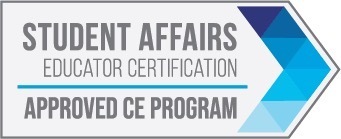
-
You must log in to register
- Non-member - $179
- Member - $79
- More Information
-
You must log in to register
-
Contains 1 Component(s) Includes a Live Web Event on 06/12/2024 at 1:00 PM (EDT)
This track is designed for Title IX Coordinators and is the most comprehensive of the Title IX Certificate Program. It covers the requirements under the May 2020 regulations for hearing proceedings, an overview of informal resolution options, and the development of policies, procedures, and practices that comply with the regulations. This track is appropriate for the senior Title IX officer at an institution or any other senior-level administrator who oversees the Title IX function at an institution.

Peter Lake
Professor of Law; Director of the Center for Excellence in Higher Education Law and Policy
Stetson University
Peter Lake is a professor of law, Charles A. Dana Chair, and the Director of the Center for Excellence in Higher Education Law and Policy at Stetson University College of Law. He has spent 30 years in the classroom teaching law students and served as Stetson’s interim director of Title IX compliance in 2015. He is an internationally-recognized expert on higher education law and policy. He has been quoted or referred to in hundreds of newspapers and court opinions throughout the United States, including the Supreme Courts of California and Massachusetts in 2018. Professor Lake, an award-winning academic, has authored numerous law review articles, books, and other publications. Professor Lake is a highly sought-after speaker, and he has served as a presenter or keynote speaker at several hundred international, national, regional, and local meetings. He has trained thousands of campus personnel on student safety and other issues, including student mental health, alcohol and drug abuse, Title IX and sex discrimination, and First Amendment issues. Professor Lake is a graduate of Harvard College and Harvard Law School and serves as a Senior Higher Education Consulting Attorney at the law firm of Steptoe & Johnson PLLC.

Jennifer Hammitt
Associate Vice President for Student Engagement, Student Success & Enrollment Management
Florida Gulf Coast University
Dr. Jennifer R. Hammat joined Florida Gulf Coast University in 2023 as the Associate Vice President for Student Engagement, Student Success & Enrollment Management. Prior to FGCU, she served as the Dean of Students at the University of Southern Indiana and at George Mason University as the University Title IX Coordinator. She served in a variety of roles at The University of Texas at Austin, as the Associate Vice President for University Compliance Services, Assistant Vice President for Student Affairs, Title IX Coordinator, and Clery Act Coordinator. Dr. Hammat has facilitated the implementation of Title IX requirements and best practices for the past 9 years. Before her Title IX work, she worked for sixteen years in Student Affairs with Student Conduct, Student Media, Greek Life, Residence Life, Contract Management, Policy Implementation, Strategic Planning, Enterprise Risk Management, Minors on Campus, and Student Government practices.
Dr. Hammat earned her B.A. in Organizational Communication from Murray State University, and her M. Ed. and Ed. D. in Higher Education Administration, both from Texas Tech University.

Jake G. Sapp
Assistant State Attorney
Florida 4th Circuit
Jacob Sapp is an attorney who focuses on civil rights compliance within higher education settings. As a former institutional compliance officer and Title IX administrator, he helps his clients navigate complex situations while ensuring all processes and procedures meet legal and regulatory standards.
Specifically, Jacob has experience managing Title IX processes, including report intake, the implementation of supportive measures, and formal complaint gatekeeping, as well as preparing notices of allegations and managing informal resolutions, sanctioning, and recordkeeping. He’s also served in the role of decision-maker for various clients and is able to provide interim Title IX coordination. Jacob has drafted and updated non-discrimination policies for Title VI, Title VII, Title IX, and ADA/504 on behalf of colleges and universities and serves as a civil rights investigator, conducting interviews and authoring investigative reports.
Serving as counsel to a variety of clients within higher education, Jacob leads training events for students and employees on topics such as VAWA, hazing, and bystander intervention, as well as advises college leadership personnel on institutional compliance, risk management, and other evolving legal topics.
Jacob is an experienced presenter, creating and delivering civil rights training presentations for various national associations and institutions of higher education.

Jill Dunlap
Senior Director of Research, Policy, and Civic Engagement
NASPA - Student Affairs Administrators in Higher Education
Dr. Jill Dunlap is the director for research and practice at NASPA, based in Washington, DC. Prior to joining NASPA, Jill worked closely with college student survivors of sexual violence for more than 14 years at three different campuses. In 2014, Jill served as a non-federal negotiator representing four years of public institutions on the VAWA negotiated rulemaking committee. Jill has her Ph.D. in political science and public administration from Northern Illinois University, where her dissertation work focused on the experiences of students impacted by sexual violence on campus.
June 3 – 27, 2024
This track is designed for Title IX Coordinators (and their Deputies or Designees) and is the most comprehensive of the certificate program. This track is appropriate for the senior Title IX officer, Deputy Title IX Coordinator or other designee at an institution or system, or any other senior-level administrators who provide oversight for the Title IX function at an institution or system.
Duration: Approx. 33.5 hours total
Audience: Title IX Coordinators and Deputies/Designees
Format: Video Modules and 3 Live Virtual Sessions
See below for details on pre-recorded training modules and live virtual session dates and times.
Outline
- Introduction: Critical Issues in Title IX and Sexual Misconduct (30 mins)
- Important §106.2 Definitions, Including Sex-Based Harassment (90 mins)
- Consent and Unwelcomeness (30 mins)
- The Critical Role of the Title IX Coordinator (75 mins)
- The Various Roles of Investigators and Decision-Makers (30 mins)
- Detailed Overview of Title IX Mandates, Including Grievance Processes (120 mins)
- Title IX Intersections with Other Laws (60 mins)
- Trends in Title IX Caselaw and Related State Legal Mandates (120 mins)
- Developing Policies, Procedures and Practices (90 mins)
- Title IX Evidence Issues (60 mins)
- Interview Techniques for Title IX Investigations (120 mins)
- Constructing an Investigative Report (60 mins)
- Title IX Live Hearing Proceedings (45 mins)
- Questioning in Decision-Making Processes /Live Hearings (45 mins)
- Essentials for Decision-Making (45 mins)
- Bias, Conflict of Interest, Retaliation (45 mins)
- The Roles of Advisors in the Title IX Process (45 mins)
- Informal Resolution, Restorative Justice, and Mediation (60 mins)
- Records Management, FERPA, Confidentiality and Privacy (75 mins)
- Supportive Measures and Remedies Under Title IX (60 mins)
- Pregnant and Parenting Issues (75 mins)
DISCLAIMER: The pre-recorded video training modules are currently being developed by the NAPSA Title IX Certificate Program training team. The exact topics and duration listed for the training tracks and individual modules below are subject to change. Video training modules will be available to the cohort on a rolling basis, with the first batch of modules released on Monday, June 3, 2024.
Live Virtual Sessions:
All three live sessions are mandatory for this track. Live sessions will be recorded and available on demand.
Title IX Coordinators: Wednesday, June 12, 2024, from 1:00 – 4:30 pm Eastern
Decision-making in Grievance Procedures/Sexual Misconduct Procedures: Tuesday, June 18, 2024, from 1:00 – 4:30 pm Eastern
Investigations: Thursday, June 20, 2024 from 1:00 – 4:30 pm Eastern
Questions?
Course Content: Jill Dunlap, Senior Director of Research, Policy, and Civic Engagement Technical Issues: virtuallearning@naspa.org
-
You must log in to register
- Non-member - $1,799
- Member - $1,999
- More Information
-
Contains 1 Component(s) Includes a Live Web Event on 06/12/2024 at 1:00 PM (EDT)
The question is not if but when. College campuses find themselves faced with a crisis at an alarming rate. Student affairs professionals are integral parts of the campus crisis response team. This course will give a broad overview of how student affairs professionals can best support their students and campus during crisis situations. Topics will include the foundations of crisis management, crisis management teams or emergency management teams, the creation of crisis management plans, communications during times of crisis, recovery following an incident, and relationships across the institution and with outside agencies.
Dates: June 10, 2024- July 19, 2024
The course registration includes the publication Campus Crisis Management: A Comprehensive Guide for Practitioners.
This course will give a broad overview of how student affairs professionals can best support their students and campus during crisis situations. Topics will include the foundations of crisis management, crisis management teams or emergency management teams, the creation of crisis management plans, communications during times of crisis, recovery following an incident, and relationships across the institution and with outside agencies. Participants will learn about best emergency management and campus crisis management best practices and see pragmatic examples of how they can implement best practices on their campuses.
This course highlights the timely landscape of emergency management and crisis action planning on college campuses. Instructors with extensive experience in this area will bring in topic experts to share best practices in campus crisis management to outline a variety of experiences and lessons learned.
Learning Outcomes
- Articulate and Implement an emergency planning process and steps for future actions/reflection.
- Contribute to and/or write a comprehensive emergency management plan to implement on their campus or program.
- Identify individual positions and departments critical to a holistic all-campus approach to emergency preparedness at their institution.
- Identify the key terms used in higher education emergency management.
Course Outline:
Week 1 -Intro - Historical Events, Crisis Management Teams/Emergency Management Teams
Week 2- Crisis Action Plans/Emergency Operations Plans
Week 3 -Crisis Communications
Week 4 - Coordination with Outside Agencies
Week 5 -After the Crisis / Recovery Planning and the Path Forward
Live Sessions
The five 60-minute live sessions will be held every Wednesday from 1:00 p.m. ET. There will be no live sessions or work the week of July 4th.
They are scheduled for the following dates:
Week 1: June 12
Week 2: June 19
Week 3: June 26
Week 4: July 10
Week 5: July 14
This course will be synchronous and asynchronous, with one weekly live session. Depending on the content and speakers of each live session, the session may be recorded for viewing at a later date. Attendance and participation in the live session are highly encouraged and offer an opportunity to engage in activities and knowledge sharing that will add to the learning experience.
Course Commitment and Expectations
The course will require 4-7 hours per week, with assignments, engagement, and live sessions. All participants are expected to contribute to discussions and be present during live sessions. The course requires participants to have access to a computer, Wi-Fi, and webcam. All live sessions will be via Zoom, which will provide presentation slides and closed captioning.
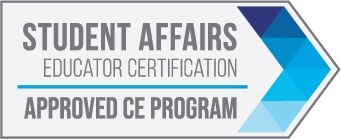
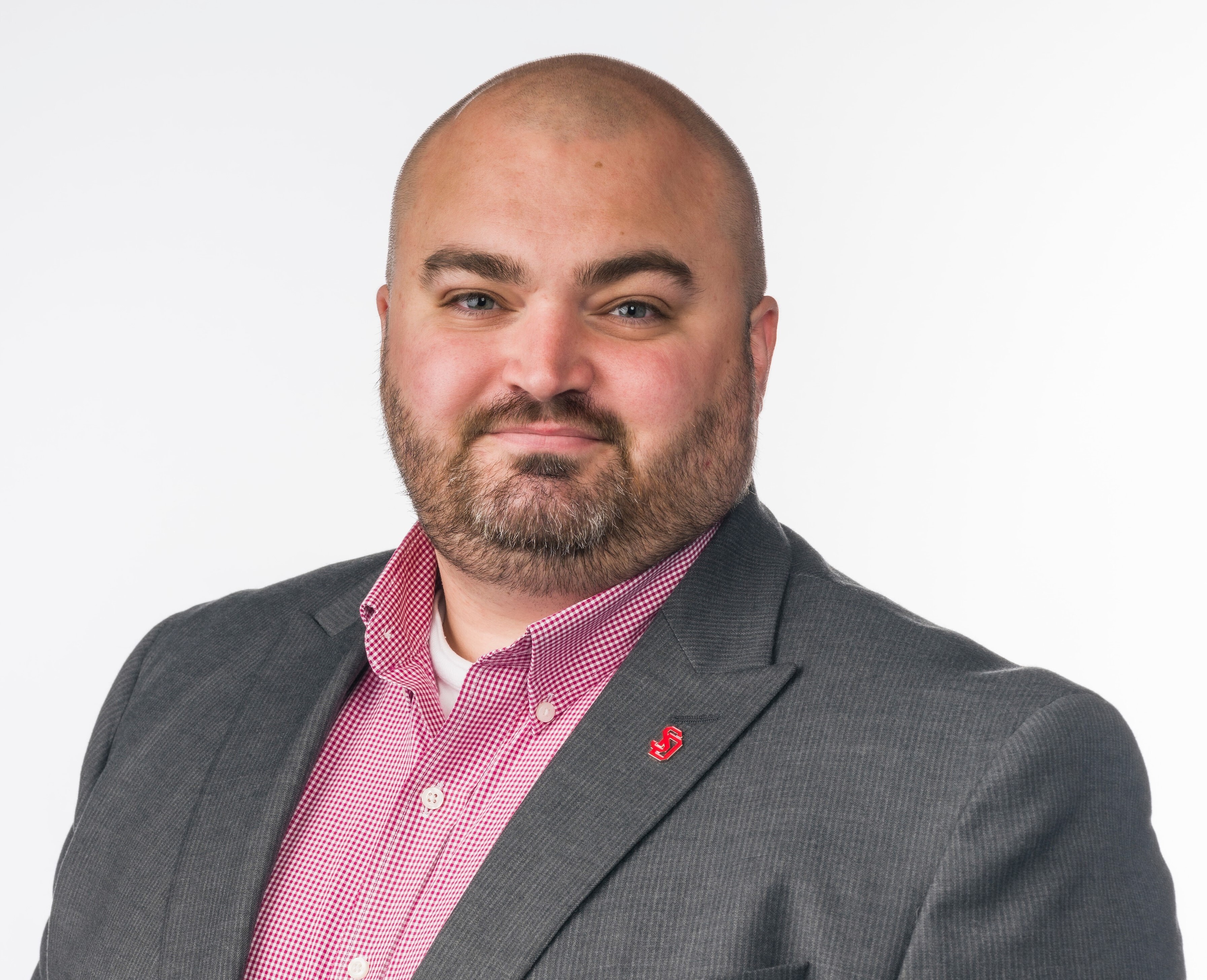
Bryant Jackson
Chief of Police
University of South Dakota
Bryant Jackson, Ed.D., serves as the Chief of Police at the University of South Dakota and as an adjunct graduate faculty member in the University of South Dakota educational leadership program. He graduated from the Federal Bureau of Investigations National Command Course cohort #4 and the Northwestern School of Police Staff and Command. Before entering law enforcement, Dr. Jackson served in the US Marine Corps. He has completed an undergraduate degree in transportation and logistics management, a graduate degree in emergency and disaster management, and a Doctor of Education degree in adult and higher education leadership.
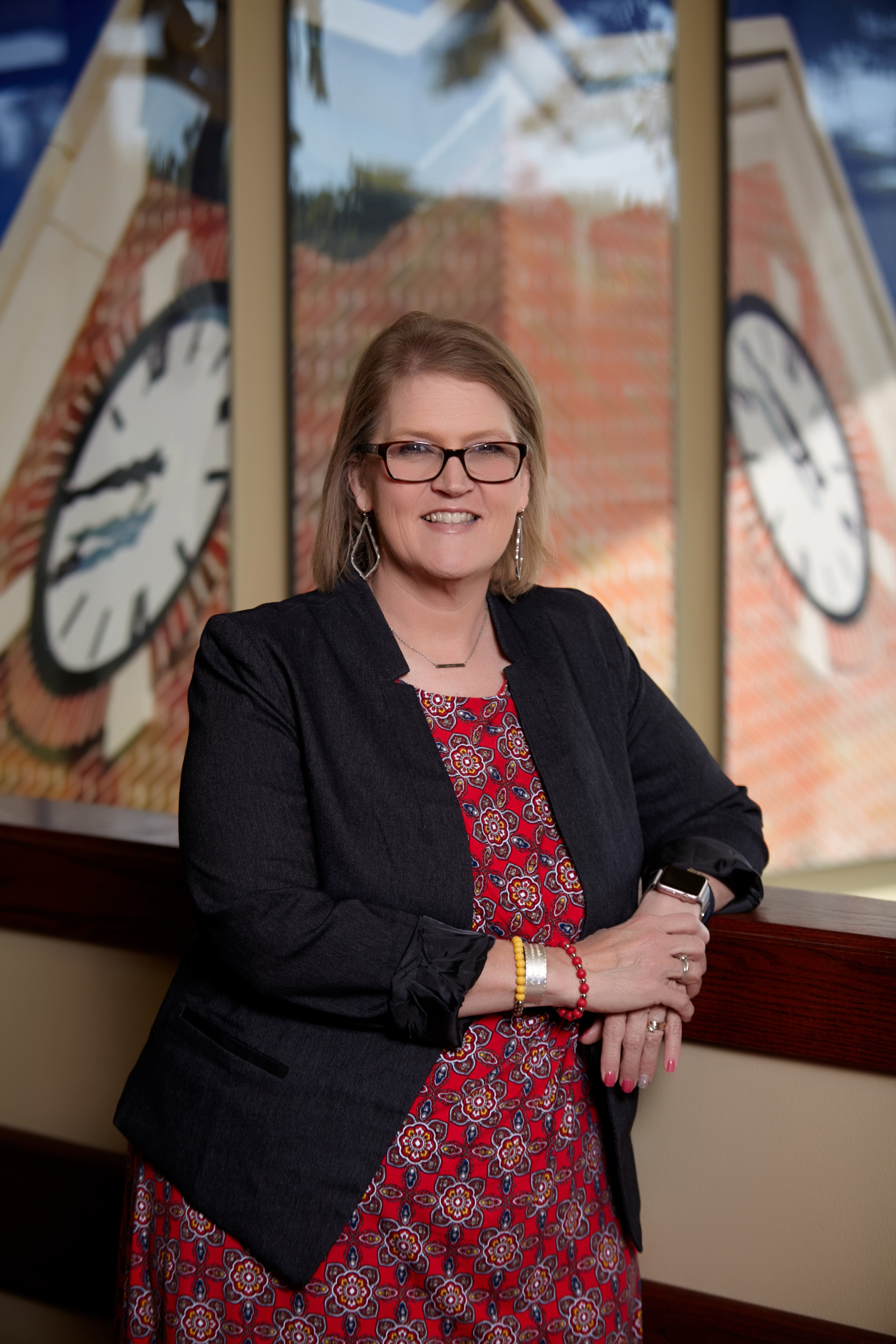
Cindi Albrightson, M. Ed.
Title IX & Compliance Coordinator, Campus Safety Advisor
Southwestern Oklahoma State University
Cindi Albrightson, M. Ed. serves as the Title IX & Compliance Coordinator and Campus Safety Advisor for Southwestern Oklahoma State University (SWOSU). She previously served as an Instructor and Interim Chair of the Department of Engineering Technology, teaching Safety and Environmental Regulations courses. Cindi serves on the Custer County Local Emergency Planning Committee and the Custer County Full Scale Emergency Response Team. She has experience with OSHA, PEOSH, EPA, and ADA. Cindi completed her undergraduate degree in Industrial Technology with a specialization in Industrial Supervision and her graduate degree in Education at SWOSU.
-
You must log in to register
- Non-member - $549
- Member - $449
- More Information
-
Contains 1 Component(s) Includes a Live Web Event on 06/11/2024 at 1:00 PM (EDT)
This session will help participants recognize how higher education jargon and acronyms can create barriers for first-generation college students and families and provide strategies for recalibrating communication.
College knowledge consists of the information and resources students need to navigate the higher education system. One distinct aspect of college knowledge is the language and acronyms that institutions use to create their own jargon (e.g., Ardoin, 2018; Ardoin, 2021—see Critical Conversation Six; Jarvis, 2019). Utilizing research data and case studies, the presenter will explore the ways jargon influences college access and success for first-generation college students and families. She will discuss how jargon shows up in and shapes student matriculation and transition; creates barriers and challenges during campus experiences; and influences persistence and completion. The presenter will offer suggestions for managing jargon use and continuing to learn about these topics.
Learning Outcomes:
Participants will:
- discover how college knowledge and institutional jargon can be an access and success challenge, particularly for first-generation college students;
- examine jargon examples through research, data, and case studies; and
- determine steps to reduce jargon and broaden language and communication to be more inclusive of all students and campus community members.
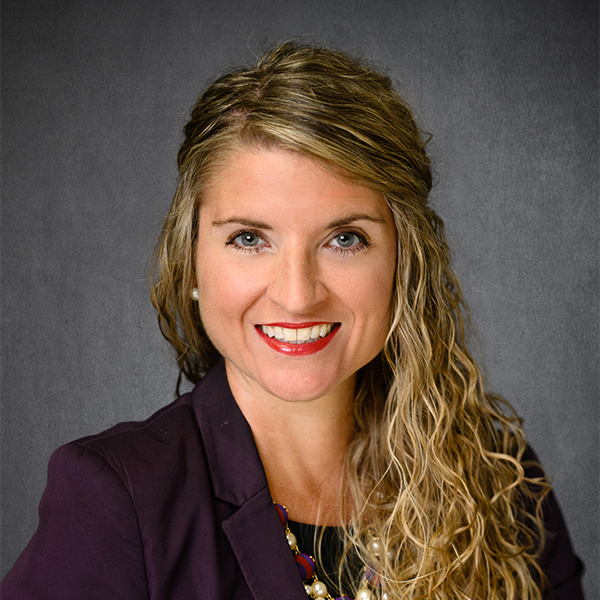
Sonja Ardoin, Ph.D.
Associate Professor of Higher Education and Student Affairs
Clemson University
Sonja Ardoin, Ph.D. is a learner, educator, facilitator, and author. Proud of her rural hometown of Vidrine, Louisiana; her working-class, Cajun roots; and her first-generation college student to Ph.D. journey, Sonja holds degrees from Louisiana State University, Florida State University, and North Carolina State University. She considers herself a scholar-practitioner of higher education; she served as an administrator for 10 years before shifting to the faculty in 2015. She currently serves as an associate professor of higher education and student affairs at Clemson University. Sonja studies social class identity, college access and success for rural and first-generation college students, student and women’s leadership, and career preparation and pathways in higher education and student affairs. Sonja has published six books, one monograph, and numerous book chapters and journal articles. She stays engaged in the broader field through ACPA, AFLV, ASHE, the Center for First-generation Student Success, NASPA, SACSA, and several journal editorial boards. She enjoys books, traveling, music, sports, laughing, and spending time with her husband, daughter, and pup. Learn more about Sonja's work here.
-
You must log in to register
- Non-member - $179
- Member - $79
- More Information
-
Contains 1 Component(s) Includes a Live Web Event on 06/04/2024 at 1:00 PM (EDT)
We have developed an interactive virtual session that supports community college leaders in assessing their institution's readiness for equity-oriented change. Amid increased resistance and pushback to DEI efforts, we share insight from our research and practice on specific strategies to advancing racial equity efforts across community colleges. Specifically, we offer a model focused on two dimensions: (1) the level of organizational support and (2) shared responsibility to enact racial equity. From these dimensions, we describe four quadrants (Convergence, Performative, Collective, and Burdened) with distinct organizational conditions that shape how community college leaders design, build, and sustain equity efforts. The ability to identify organizational conditions that either cultivate or abate equity efforts is critical to disrupt, innovate, and transform our institutions. Our model is one way for equity advocates to decipher their own organizational archetype and leverage that information to mobilize their racial equity efforts.
We have developed an interactive virtual session that supports community college leaders in assessing their institution's readiness for equity-oriented change. Amid increased resistance and pushback to DEI efforts, we share insight from our research and practice on specific strategies to advancing racial equity efforts across community colleges. Specifically, we offer a model focused on two dimensions: (1) the level of organizational support and (2) shared responsibility to enact racial equity. From these dimensions, we describe four quadrants (Convergence, Performative, Collective, and Burdened) with distinct organizational conditions that shape how community college leaders design, build, and sustain equity efforts. The ability to identify organizational conditions that either cultivate or abate equity efforts is critical to disrupt, innovate, and transform our institutions. Our model is one way for equity advocates to decipher their own organizational archetype and leverage that information to mobilize their racial equity efforts.

Eric R. Felix
Associate Professor
San Diego State University
Eric R. Felix is the proud son of Mexican and Guatemalan immigrants. Born and raised in Anaheim, he is the product and beneficiary of public education from kindergarten to graduate school. A first-generation college student, he now gets to be a faculty member at San Diego State University teaching in Student Affairs and Community College Leadership programs. Using Critical Policy Analysis, he explores the ways policymakers craft higher education reform and how institutional leaders implement them. Particularly, Dr. Felix focuses on understanding how the implementation of lauded student success reforms may benefit, harm, or render invisible Latinx students and other racially minoritized groups in the community college context.

Dr. Tammeil Gilkerson
Chancellor
Peralta Community College District
Dr. Tammeil Y. Gilkerson is the Chancellor of the Peralta Community College District. Dr. Gilkerson is a leader in a number of statewide efforts to find solutions that address students’ basic needs, support undocumented and mixed-status students, and improve the quality and delivery of distance education in community college. She is passionate about building learner-centered institutions that reflect students' lived experiences, provide hope, and practice love. Core to this vision, she recognizes the need to nurture leadership and community-building at all institutional levels and has tried to create spaces where individuals can be supported and affirmed as they engage in the vulnerable act of learning and leading with authenticity, courage, and humility. Dr. Gilkerson sees herself simultaneously as a teacher and a student, consistently asking, what could be possible if we believe we can achieve liberation and social justice in our communities? And what will I risk to achieve it?

Dr. Ángel Gonzalez
Assistant Professor
Fresno State University
As a first-generation queer, Latinx, joto, they engage their scholarship through post-structuralist and transformative paradigms rooted in Xicana/Latina feminists epistemologies. Dr. González’s research agenda focuses on three strands; 1) examining the conditions, experiences, and outcomes for queer and/or trans communities; 2) Latinx Leadership and organizational change; and 3) racial equity policy implementation all within the community college context. Dr. González's foundational research has been published in many leading community college and higher education journals such as the Community College Journal of Research and Practice (CCJRP), the Journal of Research for Community Colleges (JARCC), the Journal for Student Affairs Research and Practice (JSARP), New Directions for Community Colleges (NDCC), and the International Journal of Qualitative Studies in Education (IJQSE).
Prior to Dr. González's appointment at Fresno State, they were a postdoctoral scholar in the Pullias Center for Higher Education at the University of Southern California (USC) Rossier School of Education. Dr. González informed the creation and development of the Change Leadership Toolkit (CLT) funded by the Bill & Melinda Gates Foundation. Dr. González has over 10 years of Higher Education and Student Affairs experience having worked across institution types (private, state, R1, community colleges, HSIs, MSIs, PWIs) and functional areas (residence life, student development, student government, student life, student conduct, academic advising, retention based programs).
-
You must log in to register
- Non-member - $179
- Member - $79
- More Information
-
You must log in to register
-
Contains 3 Component(s), Includes Credits Includes a Live Web Event on 06/03/2024 at 1:00 PM (EDT)
Where do you begin to develop a structure of assessment within a division that has operated without one? This webinar will focus on taking attendees through the foundational year of building structure and staff capacity for assessment at a community college's division of student affairs. Included are steps to teach learning outcome development in the co-curricula. There will be visuals on assessment plans, tools used to teach assessment and data literacy through an equity lens.

Dr. Chrissy L. Davis Jones
Vice President, Student Success and Chief Enrollment Officer
HACC Central Pennsylvania's Community College
Dr. Chrissy Davis Jones currently serves as the vice president for Student Success and chief enrollment officer at Harrisburg Area Community College (HACC) in Central Pennsylvania with nearly 25 years of experience at various post-secondary institutions, and with 18 of those years focused on developing, restructuring, and implementing student success-related programs.
Since Chrissy arrived at HACC, she has quickly made an impact by securing a 2.3-million-dollar Title 3 SIP Grant to transform the first-year experience for greater student success. She also oversaw the selection of HACC becoming one of seven colleges selected to become an Achieving the Dream institution in 2022 - focusing on whole college transformation for student success and data literacy. Lastly, Dr. Davis Jones established and co-leads the College's strategic enrollment planning committee. Her focus on the implementation of a collegewide strategic enrollment plan with student access and success at the center led to an increase in HACC's fall-to-fall and fall-to-spring retention for the first time in 10 years.
Dr. Davis Jones is considered a systems thinker; this coupled with her research and data-informed approach, has led to Chrissy being asked to serve as a consultant to higher education institutions in need of support to facilitate change.

Angela M. Campbell
Assistant Vice President, Assessment, Planning and Strategy
HACC Central Pennsylvania's Community College
Angela M. Campbell, Ph.D., LPC serves as the Assistant Vice President of Assessment, Planning and Strategy. She is responsible for planning, managing strategic initiatives, process improvements and quality assurance projects that improve Student Success and Enrollment Management (OSSEM) program performance. Angela works closely with OSSEM executives and collaborates across the college to establish objectives, develop and implement short-and-long term strategies, oversees Assessment for the Division, and supports a model for institutional capacity building in data literacy. She serves as the co-chair of strategic enrollment management and collaborates with other college leaders for Institutional Effectiveness.
Angela has worked at HACC Central Pennsylvania’s Community College for 20 years serving in various roles and most recently in her current position for the past three years. As Co-Chair of SEM, she assisted in the development and implementation of a plan that lead to an increase in our F2F and F2S retention at the college for the first time in 10 years. Angela was recently nominated for the Building a Culture of Assessment Award by SAAL - Student Affairs Assessment Leaders organization.
Angela earned her Ph.D. from Western Michigan University in Psychology, Applied Behavior Systems Analysis with an emphasis in Educational Systems.
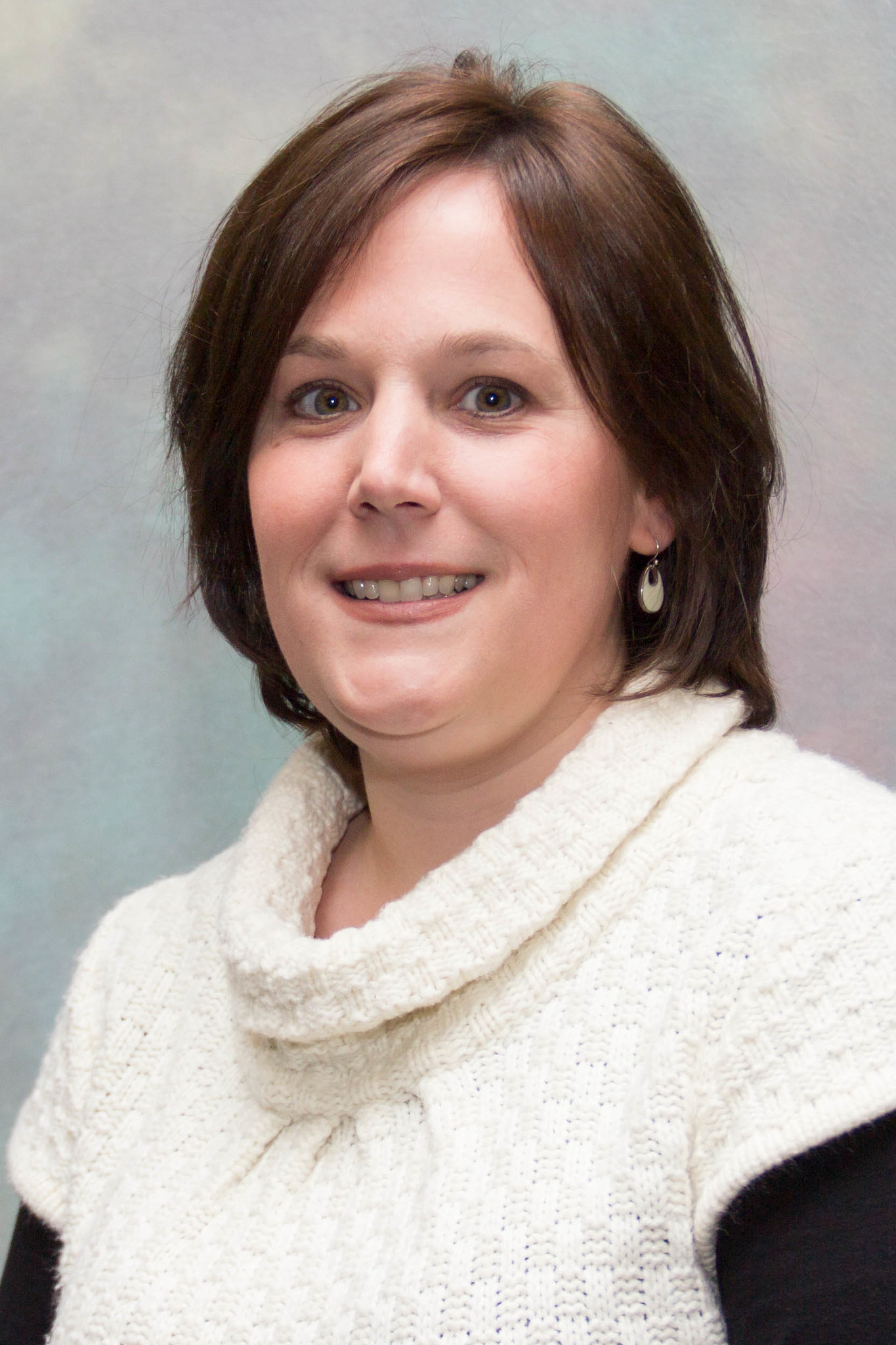
Shelly Blanchette
Director, Student Success Operations and Strategy
HACC Central Pennsylvania's Community College
Shelly Blanchette, M.S., LPC serves as the Director of Student Success Operations and Strategy at HACC, Central Pennsylvania’s Community College. She is responsible for monitoring enrollment metrics and honing leading indicators to better predict and track progression toward enrollment targets. Shelly leverages data-informed insights and collaborative partnerships for process improvements, to pilot programs, and identify strategic interventions leading to student success and sustainable enrollment health.
Shelly earned her B.S. in Human Development and Family Studies from the University of Connecticut and M.S. in Counseling from Shippensburg University. She has worked in higher education across various institution types for over 20 years both within student services and as an adjunct faculty member. Shelly credits her experience in overseeing the launching of student services at an expansion campus with readying her for the work she currently does.
The webinar begins to answer three important questions about the process of developing assessment within student affairs, 1) Where are you? In other words, where is the institution with regard to what is currently in place. What is the current process, policy and procedure that exists? This means a situational analysis of what currently exists is at the foundation of the start. 2) Where do you need to be? It is important to begin with an end in mind. What would you or your supervisor like to see after building the process for conducting assessment has been developed? 3) What are the steps you need to take to get there? There will undoubtedly be differences based on institutional culture however, beginning the process by answering these three questions will be an excellent starting point for any assessment leader who is beginning to build a structure of assessment.
Learning Outcomes:
- Outline tasks associated with building structure and staff capacity for assessment within student affairs
- Explain how to teach outcome development in the co-curricular with an emphasis on learning outcomes
- Name a “hidden” component required for staff to effectively conduct assessment
- Recognize one strategy to keep equity work infused in your work and at the forefront
NASPA has been approved by the Higher Education Consortium for Student Affairs Certification to provide CE credit for Certified Student Affairs Educators (CSAEd). NASPA is solely responsible for all aspects of this program.
Guidelines for earning CE credit:
1 CE is awarded for attending this live session.
No partial credit will be rewarded.
Participants must also complete the feedback survey in the Online Learning Community.
Credit is available for attending the live session and viewing the on-demand recording.
To receive CSAEd credit, attendees must complete the Feedback Survey in the online event offering the certification. Once the survey is completed, your Certificate will be available in the event modules. The Certificate of Completion, which will show the event and credit earnings, is available for download and/or print from the event in your Online Learning Community.

-
You must log in to register
- Non-member - $179
- Member - $79
- More Information
